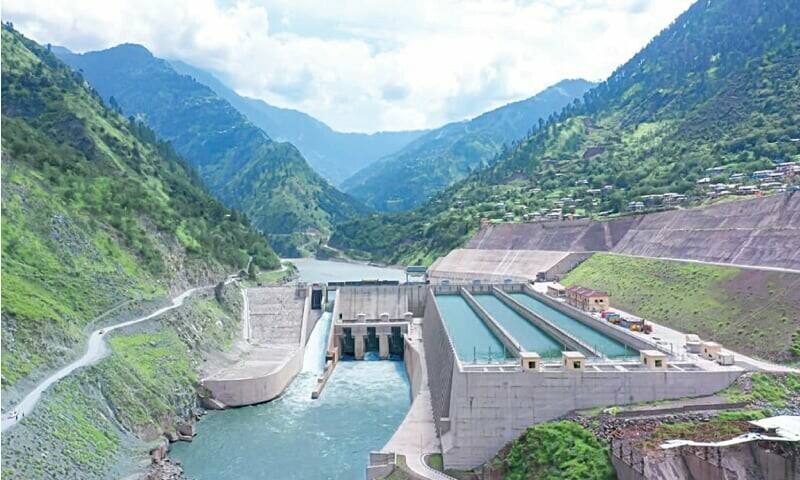POLITICS & POLICY MAKING

In a significant development, the Water and Power Development Authority (Wapda) announced the complete shutdown of the Neelum-Jhelum Hydropower Project, a major power generation facility in Azad Jammu and Kashmir. The decision was prompted by a major operational issue detected a month ago, causing significant pressure fluctuations in the project's headrace tunnel.
According to Wapda, the decision to shut down the 969-megawatt project follows a comprehensive evaluation of the situation, with plans to undertake remedial works once the problem is identified. The project, valued at over Rs500 billion, has faced operational challenges since April 2, leading to restricted generation and eventual shutdown on May 1 for physical inspection of the tunnel.
The Neelum-Jhelum project, with 90% of its infrastructure underground, has a 51.5km tunnel system, making it susceptible to geological and seismic risks. Previous repairs to its tailrace tunnel cost the nation approximately Rs6 billion, with additional energy losses and insurance claims amounting to billions more.
Since its commissioning in 2018, the project has contributed significantly to the nation's electricity supply, generating over 19.83 billion units of electricity. However, recurring operational issues have plagued the project's performance, highlighting the need for comprehensive assessments and remedial measures.
Wapda has initiated dewatering of the tunnel and flushing of de-sanders to address the current issue, emphasizing the importance of safety and reliability in hydropower operations. The project's closure underscores the challenges inherent in mega-infrastructure projects and the importance of robust monitoring and maintenance protocols.
As investigations continue and remedial actions are undertaken, stakeholders remain vigilant, ensuring the long-term sustainability and efficiency of Pakistan's hydropower infrastructure.




